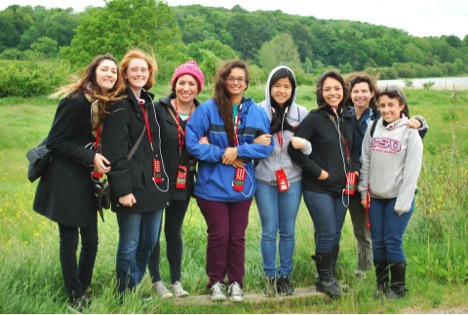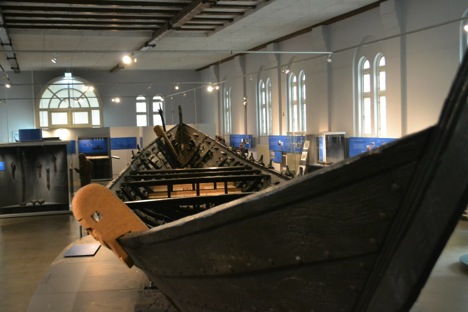Led by Dr. Colleen Delaney in the summer 2014 this course placed the coastal experience in a broad temporal perspective, envisioning the seacoast as a dynamic interface between the marine and terrestrial environments  that have provided humans access to a variety of opportunities related to: resource exploitation, transportation, colonization, cultural interaction, trade, conflict, and inspiration. Coastal northern Germany is the perfect case study to examine these issues, and during the trip we explored issues of human interaction with, and use of, marine resources from the time of the Vikings up to the present day.
During the trip students visited several museums, toured medieval Lübeck, visited several archaeological sites, took a walking tour of the Medieval ports of Hamburg and Altona, and spoke with marine resources specialists at the Thünen Institute. At the end of the course, students examined the
that have provided humans access to a variety of opportunities related to: resource exploitation, transportation, colonization, cultural interaction, trade, conflict, and inspiration. Coastal northern Germany is the perfect case study to examine these issues, and during the trip we explored issues of human interaction with, and use of, marine resources from the time of the Vikings up to the present day.
During the trip students visited several museums, toured medieval Lübeck, visited several archaeological sites, took a walking tour of the Medieval ports of Hamburg and Altona, and spoke with marine resources specialists at the Thünen Institute. At the end of the course, students examined the  contemporary pressing problems related to these topics, and applied their knowledge of anthropology to recommend ways of resolving them. Students also gained an understanding and appreciation of a foreign country. Although Germany is a “western” nation, the history of people of the region, as well as the natural resources available, has greatly influenced its development and sociopolitical trajectory.
contemporary pressing problems related to these topics, and applied their knowledge of anthropology to recommend ways of resolving them. Students also gained an understanding and appreciation of a foreign country. Although Germany is a “western” nation, the history of people of the region, as well as the natural resources available, has greatly influenced its development and sociopolitical trajectory.
